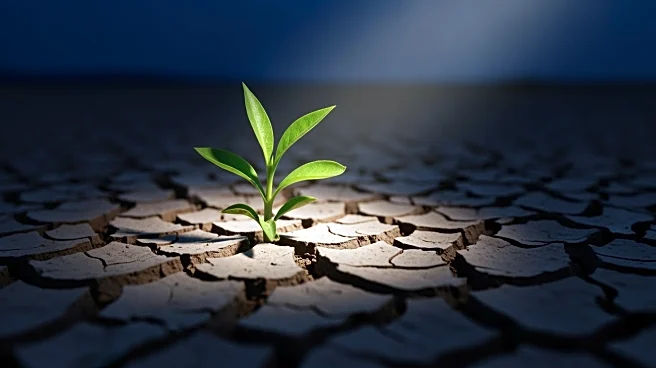What's Happening?
Cardinal Pietro Parolin, the Vatican Secretary of State, has called for urgent action to address climate change during the Climate Summit in Belém, Brazil, ahead of COP30. He emphasized that climate-related emergencies are displacing more people than
armed conflicts, highlighting the need for immediate transformation of past climate commitments into concrete actions. The Cardinal stressed the importance of multilateral cooperation, which has been in crisis, as a means to tackle climate change effectively. The Church, led by the Holy See, is deeply engaged in raising awareness and offering ethical responses to climate issues, focusing on education and formation. Cardinal Parolin also noted the tragic reality faced by Pacific island nations, which are at risk of disappearing due to climate change.
Why It's Important?
The Cardinal's appeal underscores the growing urgency of climate change as a global crisis, with significant implications for vulnerable populations. The displacement of people due to environmental factors surpasses that caused by wars, indicating a shift in global humanitarian challenges. The Church's involvement highlights the ethical dimensions of climate change, advocating for a moral responsibility to protect the planet and its inhabitants. This call to action could influence policy decisions at COP30, encouraging world leaders to implement promised measures such as reducing carbon emissions and supporting vulnerable nations. The emphasis on multilateral cooperation suggests a potential revival of international collaboration to address climate issues.
What's Next?
As COP30 approaches, the focus will be on translating commitments into tangible actions. World leaders are expected to prioritize reducing carbon emissions, supporting vulnerable nations, and building resilience against climate impacts. The Church will continue its efforts to raise awareness and promote ethical responses to climate change, potentially influencing public opinion and policy. The summit may serve as a platform for renewing multilateral cooperation, which is crucial for effective global climate action. The outcomes of COP30 could set the stage for future international agreements and collaborations aimed at mitigating climate change.
Beyond the Headlines
The involvement of the Church in climate action highlights the intersection of ethical and environmental concerns, emphasizing the moral imperative to address climate change. The focus on education and formation suggests a long-term strategy to instill environmental consciousness in future generations. The plight of Pacific island nations serves as a stark reminder of the existential threats posed by climate change, potentially galvanizing international support for affected regions. The emphasis on multilateralism could lead to a shift in global governance, fostering cooperation and shared responsibility in tackling climate challenges.
















